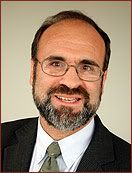Related Post - Mental: a History of the Madhouse
 BBC2's Horizon has long been my favourite documentary series, and tonight's, I think, was one of the most important documentaries they've ever screened.
BBC2's Horizon has long been my favourite documentary series, and tonight's, I think, was one of the most important documentaries they've ever screened.How mad are you? saw ten people brought together in an English castle converted into a hotel - five with a diagnosis of a mental illness, and five without any such diagnosis, who were described as, for want of a better word, "normal".
They were not allowed to discuss any real or perceived history of mental health issues with each other or, more importantly, with the three leading mental health professionals, two psychologists and a psychiatric nurse, whose job it was to work out who had a mental illness and who didn't.
And what a t
 eam they'd brought together - Michael First, Professor of Clinical Psychiatry at Columbia University and editor of the latest incarnation of the world-famous psychiatric diagnostic manual, DSM_V, psychiatric nurse Ian Hewlett, mental health advisor to the Royal college of Nursing, and Richard Bentall, Professor of Clinical Psychology at Bangor University.
eam they'd brought together - Michael First, Professor of Clinical Psychiatry at Columbia University and editor of the latest incarnation of the world-famous psychiatric diagnostic manual, DSM_V, psychiatric nurse Ian Hewlett, mental health advisor to the Royal college of Nursing, and Richard Bentall, Professor of Clinical Psychology at Bangor University.It was a controlled rerun of a famous experiment conducted by David Rosenhan in 1972 which is summarised by the title of Rosenhan's 1973 paper, On being sane in insane places. Basically, "pseudopatients" - sane people pretending to have symptoms of mental health problems - were admitted to various psychiatric hospitals claiming that they heard an unknown voice of the same sex as themselves saying "empty", "hollow" and "thud".
The results still make surprising reading. While many patients in the psychiatric wards correctly surmised that their peers were not suffering a mental illness, each of the eight pseudopatents was diagnosed with a mental illness by psychologists - one with manic depression (bipolar affective disorder) and the rest with schizophrenia. Their in-patient stays ranged from 7 to 52 days, with one pseudopatient being detained for two months.
Our mental health professionals, who knew that this was a similar experiment, did well by the end of the programme, correctly identified a man with obsessive compulsive disorder - then fell over their own feet by telling a lady she was the "most normal" of the ten and unlikely to have a mental illness, only for her to inform them, "you're wrong", but felt unable to expand.
It wasn't their only gaffe in this invaluable study of how diagnoses are made. A lady whom the professionals supected of being depressed was given the task of leading a team through the forest in a paintball exercise - and suceeded, confounding their prediction that her conditional clause "if we lose" equated to an expectation: "we will lose" (their assumption, in my mind, being "because I'll make sure we do.")
When I started training to be a psychiatric nurse, we were told the most useful definition of psychiatry I've ever heard: "a blind man in a dark room looking for a black cat that isn't there". In my placements I saw many signs of hope in a profession that was struggling to pull itself up by the bootstraps, but also once witnessed a macho, preening staff nurse tell one of his charges, "you're a sectioned [detained] patient and you'll behave as such!". And there were, of course, the results of past prejudice: I saw some ladies in their last years who had been admitted for having had a baby out of wedlock, and one chap who had been admitted during the First World War with a diagnosis of "idle and lazy" - all had long lost their skills to function in anything other than a very controlled environment, and most, although sane when admitted, were (to use the documentary's word) mad.
Not all of the prejudice has gone. Coming up to modern times, I once told a colleague, a fellow mental health professional, that I had a diagnosis of manic depression. He eyed me intently and replied, "but you don't look manic depressive!" This not too long before the professionals working for Horizon opined that their mistake proved that you couldn't tell if somebody was mentally ill by looking at them.
There was a coda to the Rosenhan experiments. He informed a teaching hospital that
 pseudopatients were going to be admitted over a fixed period of time. In that duration, over 40 pseudopatients were identified, and again over 40 suspected to be pseudopatients but not proven. In reality, no pseudopatients had been admitted.
pseudopatients were going to be admitted over a fixed period of time. In that duration, over 40 pseudopatients were identified, and again over 40 suspected to be pseudopatients but not proven. In reality, no pseudopatients had been admitted.Rosenhan's critics protested that in making a diagnosis of mental illness it was necessary to listen to what the patients were saying. And there's the rub - during my first hospitalisation, I was in a ward where there was a policy that your named keyworkers would make contact with you once a day. And this they did - often by patting your elbow as they passed and asking "you ok?" It's contact, true, but in a way to which we are societally programmed to respond in the affirmative. This was the information on which the psychiatrist would make his assessment and diagnosis.
Eventually, when my wife found herself able to unload to me what she'd been told very soon after my admission - "he's a mental health worker and knows the right buttons to press to get attention" (in reality I spent most of that admission sitting by my bedside deteriorating) - the worker who said this had disappeared into the community, having done their regulation 6 months in an acute ward that qualified them for this. I was left wondering, was it the nurses who informed the psychiatrist's opinion on this, or did it go the other way round?
Thankfully I was eventually transferred to a ward where the Sister cared for her staff as much as her patients, resulting in a steady core of staff who had been there for many years. You could tell that the atmosphere was different shortly after walking onto the ward. May God bless her.

It is incredibly brave of all the participants to take part in this experiment, both the "patients" and the professionals. I look forward to next week's conclusion, and to the debates I hope will follow about what can go wrong in the mental-health diagnostic process and how to put it right.
It's ironic that with this documentary the BBC has shown how good its broadcasting can get, so shortly after the Ross/Brand case-study in how to run a contempt-driven service. In part 2 of How Mad are You? the mental health team will try to figure out which of the remaining eight have a diagnosis of mental illness, and which simply have ubiquitious character traits that no more comprise an illness than a headache does the Black Death. If the BBC were a patient, one wonders if it might emerge from the experiment with a diagnosis...corporate manic depression, perhaps, or maybe institutionalised personality disorder?
View the documentaries onBBC i-player until 23 December 2008:
How mad are you? - Part 1
How mad are you? - Part 2
You can also find many useful mental health resources with Ruby Wax at Ruby's Room.











Thanks for your kind comments about my blog!
ReplyDeleteI definitely agree the programme is a very important one and I very much enjoyed the reaction of Jasmine. That Michael First is taking part is remarkable. Richard Bentall and Peter Kinderman really ought to have declared their avowed criticism of psychiatric diagnoses though!
I hope the public reaction is kind, and I look forward to seeing the results!
Thanks Paul, I too hope that the public reaction is kind, but also that that reaction rolls on and on. I think these documentaries could have a great effect on how people with mental health problems are seen in society. - FD
ReplyDeleteHave you read Jean Vanier? (Founder of L'Arche.)
ReplyDeleteI'm afraid my opinions of the field of psychiatry have slipped to a rather low level, in the years since I began consulting them. (I've stopped. Consulting them, that is.) I hope, for everyone's sake, that improvements in the field continue.
I don't blame you for your opinion about psychiatry, because there's still some dinosaurs who pull the whole field down. For example, I once had a CPN (community psychiatric nurse) who spent over an hour doing a questionnaire with me that would help sketch a profile relating to affective disorders. She reported back to me that when she'd taken it back to my psychiatrist, he said "I don't believe in questionnaires", and that was that. For me that said it all, until I was admitted to a ward where the sosultant was a university prof at Cambridge, and big enough to realise that none of his assumptions were beyond question.
ReplyDeleteI've heard of Jean Vanier, but I don't know a lot about him. What does he write about?
Jean Vanier establishes homes for the mentally disabled, internationally. He writes about our attitudes toward the outcasts, not just the mentally disabled, but all those who "don't fit in". Some of the books are too slmplistic, but others (the thicker books, you can guess) are wonderful. One that's not too involved for me (my brain just doesn't work anymore, some days) is called Befriending the Stranger.
ReplyDeleteI'll have a look for that on Amazon, when the wage comes in.
ReplyDelete